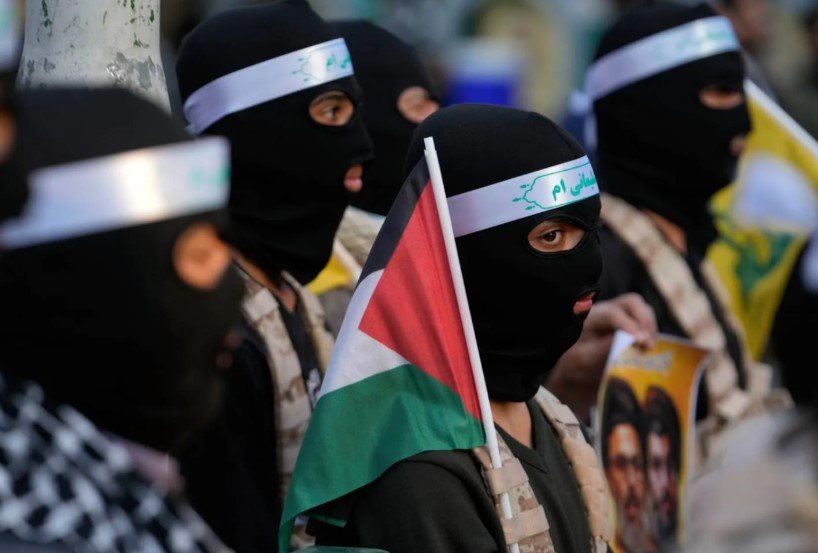Tense negotiations over a potential ceasefire in Gaza took a blow this week after the Hamas delegation abruptly left Cairo without sealing a deal. Talks are expected to continue, but the impasse raises fresh concerns over how long the conflict may stretch.
The departure comes amid mounting international pressure—especially from Washington—pushing Hamas to expand the number of hostages it’s willing to release. So far, nine have been agreed upon. It’s not enough, say US officials.
Ceasefire Talks Stall Again, But Not Over Yet
Egyptian sources told Qatari newspaper al-Araby al-Jadeed that no concrete ceasefire agreement was reached during the latest round of talks in Cairo. Hamas’ representatives walked out without setting a date for return.
Still, the door isn’t shut. All sides reportedly agreed to keep discussions alive. That’s something, at least. But for families waiting on news, it’s another gut-wrenching pause in a story that keeps dragging on.
The negotiations were meant to revive a truce that had collapsed last month following a series of Israeli airstrikes and renewed hostilities on the ground. Mediators from Egypt and Qatar were present during the discussions.

Hostage Numbers at the Heart of the Standoff
The United States has stepped in more assertively, urging Hamas to release more captives. But only nine names have surfaced in the latest talks.
According to sources familiar with the matter:
-
Hamas has conditionally agreed to free nine living hostages.
-
US negotiators want the number significantly higher.
-
The captives’ identities remain undisclosed due to security concerns.
This sticking point isn’t just tactical. It’s symbolic. For Israel, hostage recovery is a national priority. For Hamas, it’s a bargaining chip.
One source hinted that Hamas might consider releasing more hostages if Israel softens its military presence in northern Gaza. Nothing official, but murmurs like that could shape future talks.
Egypt and Qatar Still Playing Mediator
Cairo remains the key venue. Egyptian intelligence has long acted as a go-between for Israel, Hamas, and other regional players. This time, Qatar joined the table, further complicating the diplomatic equation.
Cairo’s mediators reportedly floated several proposals aimed at:
-
Reducing ground fighting in Gaza City.
-
Opening additional humanitarian corridors.
-
Securing phased hostage exchanges.
But no plan gained unanimous traction.
A small paragraph here. Just one sentence.
Meanwhile, back-channel chatter has hinted at frustration among Egyptian officials, with one source calling the current phase “diplomatically exhausting.”
What Broke the Previous Ceasefire?
The last truce crumbled in mid-March. Israeli forces resumed airstrikes in response to rocket fire coming from Gaza, targeting what the IDF called “high-priority militants.”
Hamas said those actions violated the ceasefire terms, reigniting the spiral of attacks and counterattacks.
The breakdown wasn’t just military. Political maneuvering also played a part. Israeli leadership, under internal pressure, has been reluctant to grant further concessions unless a significant number of hostages are returned.
Table: Timeline of Recent Ceasefire Attempts
| Date | Event | Outcome |
|---|---|---|
| Feb 22, 2025 | Ceasefire brokered by Egypt and Qatar | Temporary calm |
| Mar 14, 2025 | Israel strikes Gaza after rocket fire resumes | Ceasefire collapses |
| Apr 10, 2025 | New talks begin in Cairo | No agreement reached so far |
| Apr 14, 2025 | Hamas leaves Cairo talks | Discussions to continue later |
Pressure Mounts as Civilian Toll Grows
With each passing day, the humanitarian crisis worsens. Over 33,000 people have been killed in Gaza since October 2023, according to Palestinian health officials. Israel disputes those figures, but there’s little doubt the cost has been immense.
The UN has called the current situation “untenable,” and human rights groups are pushing all parties to come to terms—fast.
Aid groups warn that another failed negotiation could severely hinder humanitarian access in central Gaza, where food and medical supplies are dwindling.
What’s Next? A Lot of Waiting—and Whispered Deals
Nobody’s waving a white flag just yet. But progress is inching forward like a car stuck in sand.
Hamas’ departure doesn’t mean talks are dead. It just means we’re in for more delays, backroom calls, and maybe a few more public statements that say everything and nothing at once.
One source close to the process described it like this: “It’s a mess, but messes can be cleaned up.”
The next move? Likely more shuttle diplomacy by Egypt and Qatar, maybe even a renewed push from US Secretary of State Antony Blinken, who has been vocal about the need for swift resolution.
